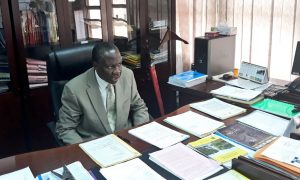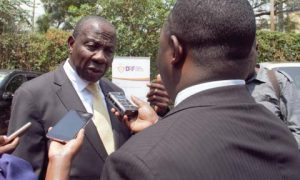Matia Kasaija, Finance minister has said that government will continue to exercise caution while taking on new national debts to avoid suffocating the country’s economy.
Kasaija assured the country during that FY 2019/20 Budget reading that whereas Uganda’s debt continues to rise, it is still sustainable.
The stock of Government debt rose to Shs42,760billion as at end-December 2018. At end of December 2017, it was Shs37,208 Billion.
“I would like to assure the country that our debt remains sustainable in the medium to long term. As of December 2018, debt was at 41.8% of GDP in nominal terms and 31.7% of GDP in present value terms, well below the threshold of 50% Debt to GDP ratio contained in the Charter for Fiscal Responsibility and the East African Community (EAC) Monetary Union Protocol,” Kasaija said, adding that Uganda compares very favourably with its peers, because most of our debt has been contracted on concessional terms.
“Our debt has financed priority and productive sectors which will generate positive economic returns. Government will continue to exercise caution while taking on new debt. The rate of debt accumulation is expected to reduce in the medium term, as flagship infrastructure projects are completed,” he said.
To ensure Debt Sustainability in the short, medium and long term, Kasaija said that Government will continue to prioritise borrowing for mainly infrastructure development projects to address the existing infrastructure gaps for industrial enhancement, power transmission and distribution, transport, and water for production; Improve loan absorption as well as effective utilisation of the borrowed resources; including investing in export-oriented areas to boost exports which also increase our capacity to service external debt; Apply more stringent vetting of projects to be financed by loans, including prioritizing only projects that enhance the productive capacity of the economy, demonstrate high economic returns, and help generate future growth; and minimize the financing risks arising from commercial loans and associated volatility in exchange rates and interest rates.
Kasaija also concerned and warned against vandalism of public projects.
“While debt financing is used to finance critical public projects, some non-patriotic members of the society unfortunately continue vandalizing project assets, mainly in the electricity and transport sectors. This does not only undermine the generosity of the tax payers from the countries of our development partners but also curtails effective utilization of the assets when the projects are completed. I therefore appeal to the public and citizens of this country to respect these assets and desist from acts of vandalism,” he said.




























